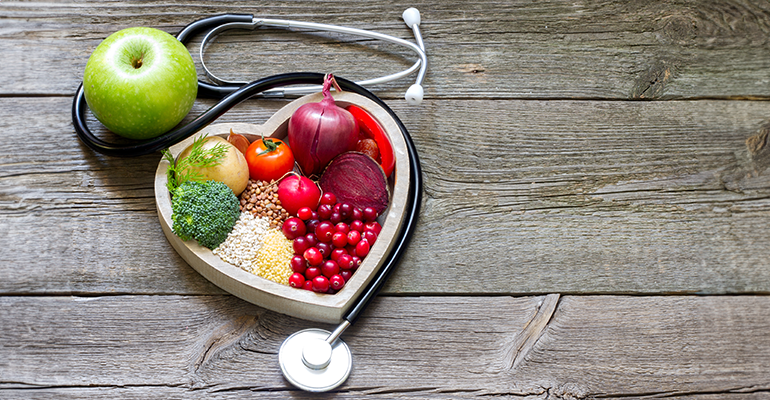News
‘Food is medicine’ approach can save lives and cut healthcare costs
1 Nov 2023
Targeted food and nutrition strategies, such as medically tailored meals and discounts or free produce such as fruits and vegetables, should be an integral part of healthcare at a national level, say experts.
Researchers at the Food is Medicine (FIM) Institute at Tufts University, point to the possibilities of introducing medically tailored meals and discounts or free produce such as fruits and vegetables for patients with chronic diet-related disease.

“This [the two interventions] is a rare outcome in medical care as few, if any, other interventions in healthcare are both cost effective and cost saving,” said the report’s senior author, Dariush Mozaffarian, a cardiologist and director of the Food is Medicine Institute.
“Despite these proven and estimated benefits to patients, healthcare systems, and the economy, FIM interventions are not universally available to health care providers as a prescribable intervention, nor to patients as a covered intervention. As a result, FIM is largely unavailable to individuals who might benefit.”
Quantifying the potential health and economic benefits of FIM efforts
The True Cost of Food: Food is Medicine Case Study details the urgent need for alternative approaches as remedies in reducing around 1.6 million hospitalisations and saving $13.6bn in health care costs in the first year alone.
Presented as two case studies, the report initially focuses on Medically Tailored Meals as the most intensive intervention for a smaller number of patients with more severe, complex medical conditions.
Here, the approach centres on preparing 10-21 weekly meals personalised by a Registered Dietitian Nutritionist (RDN) in combination with nutrition and culinary education.
The hope is that the meals will help promote improved food security and disease management, lower hospital emergency room, and nursing home admissions, and lower net health care costs of patients with diabetes, heart failure, cancer, kidney failure, and HIV.
The other intervention is produce prescriptions, in which foods such as fruits and vegetables (and sometimes also nuts, seeds, beans, whole grains, dairy, and eggs) are made more freely available to patients with at least one diet-sensitive health risk or chronic condition.
This could be achieved by electronic benefit cards or paper vouchers redeemable at grocery stores or farmers markets; picked up in the healthcare setting or by home delivery; in combination with nutrition and culinary education.
Ensuring access to nutritious food for those with the greatest need
“This case study suggests that implementing produce prescriptions nationally for patients with diabetes and food insecurity could improve health, reduce healthcare costs, and be highly cost effective in the United States,” the report said.
“Findings support the testing, scaling, and evaluation of produce prescription programs for patients with diabetes and food insecurity for both public and private payers; with a focus on ensuring access to those with greatest need.”
 © AdobeStock/mrmohock
© AdobeStock/mrmohock
Chronic conditions are a particular area of concern due to the long-term economic costs to society, where suboptimal diets contribute to health care spending and lost productivity estimated at $1.1tn each year — equalling the economic output of the entire food sector.
Devon Klatell, vice president of The Rockefeller Foundation’s food initiative, which provided support in the report’s creation said: “The true costs of our food system—the environmental impact of how food is produced, the working conditions of the people who grow our food, and the impacts on our health, health care spending, and health equity are too often left off the price tag.
“This report can assist governments, companies and consumers in better evaluating the value of Food is Medicine interventions by considering not just the price paid for food, but the return on investment in improved health outcomes they can deliver.
“We look forward to working with all sectors to further advance our collective knowledge and understanding of the potential of Food is Medicine interventions.”
Science should be a basis for food-based interventions
Commenting on the report’s findings, Dr Steven Novella, an academic clinical neurologist at the Yale University School of Medicine added: “there are many potential interventions that have a huge impact on health that are not traditional medical interventions, such as poison control, public safety, and sanitation.
“We should add to this list things like optimal nutrition, gun safety, and addressing health misinformation. And as always, such interventions need to be as evidence and science-based as possible.”
Related news

Bone broth: From old-fashioned to en vogue
24 Nov 2025
OXO’s entry into bone broth has turned the spotlight on this small but high-performance category – and there is still scope for growth, especially in the area of GLP-1 support.
Read more
Matcha madness: Why green is this year’s hottest colour
19 Nov 2025
Five years ago, it was a struggle to find matcha outside of Japan. Now it seems to be popping up everywhere, from coffee shops to supermarket shelves.
Read more
How younger consumers are redefining ingredient choices and rejecting brand loyalty
18 Nov 2025
Gen Z and millennial consumers’ preferences for transparency, functionality, and purpose are “redefining the very nature of consumption itself”, says SPINS.
Read more
Hybrid formats and flexible positioning to disrupt category norms in 2026
17 Nov 2025
Trend forecasters expect food and drink to move more fluidly across occasions, functions, and formats as consumers seek versatility, novelty, and convenience.
Read more
Empowering innovation in fortification and colouration
13 Nov 2025
Divi’s Nutraceuticals offers a large portfolio of innovative, high-quality ingredients for foods, beverages, and supplements, with bespoke solutions and expert support for product success.
Read more
Predictive maintenance redefines powder mixing reliability
13 Nov 2025
Mill Powder Tech's smart control systems harness real-time data to help the food and biotech sectors achieve zero downtime and smarter output, alongside rigorous GMP standards and ambitious ESG goals.
Read more
From fruit to functional solutions: Meet Paradise Fruits at Fi Europe in Paris
13 Nov 2025
Paradise Fruits Solutions and Paradise Fruits Health will showcase their combined expertise in delivering innovative, fruit-based solutions to the food and beverage industry at the upcoming Fi Europe trade show (2-4 December 2025, Paris).
Read more
Danone highlights digestive health as potential ‘tipping point’ for food industry
13 Nov 2025
Danone is betting on a food industry “tipping point” that will bloat the market for healthy products, particularly those related to gut health.
Read more
Bord Bia presents Irish dairy ingredient suppliers at Fi Europe
6 Nov 2025
Dairygold Co-operative Society, The Carbery Group, and Ornua Co-operative: Meet with sustainable producers of Irish dairy ingredients at Food ingredients Europe 2025, Hall 7.2 Stand M18.
Read more
Ingredient quantities mislabelled on popular protein bars, independent tests show
5 Nov 2025
Some popular protein bars contain more fat, carbs, and/or sugars than claimed on their labels, independent nutrition testing reveals.
Read more